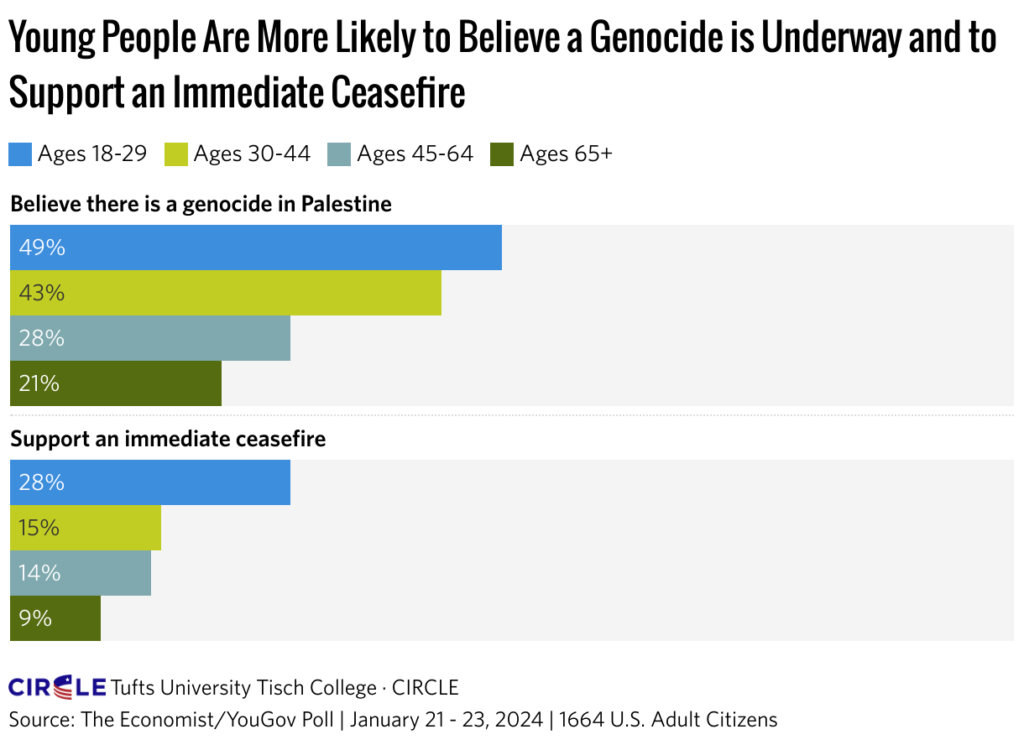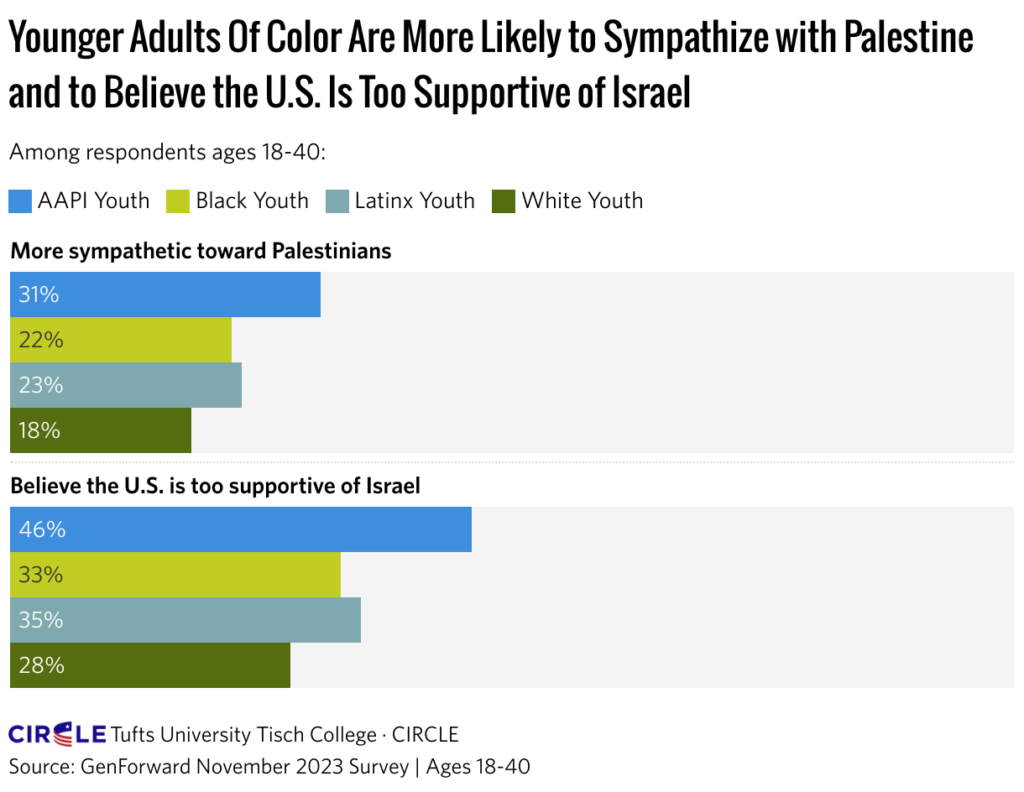It’s very common for people to use different explanatory and evaluative ideas to describe the same concrete situation, whether it’s the Israel/Palestine conflict, or bias in law enforcement, or almost anything else.
We should navigate between two obstacles, I think. One mistake to view rival ideas as simply subjective, because they are often value-laden, and to view politics as a mere clash among people with different subjective views. The other is to imagine that empirical research can settle such disputes by validating one model or (at least) refuting some of them. We can deliberate about competing models, but the discussion requires more than data.
It is often assumed that a model generates hypotheses, and we can test the model by testing its hypotheses. Nancy Cartwright disputes this assumption. She suggests that models are not like vending machines that yield hypotheses, but more like “fables” that present vivid scenarios and “morals”—suggestions for behavior—that we should look for in the world (Cartwright 1999, 185-6; Cartwright 2010).
Similarly, Max Weber understood an “ideal-type,” such as feudalism or the state, not as a hypothesis but as a “conceptual construct” that “offers guidance in the construction of hypotheses” (Weber 1905/1949, 93, 90). This means that disproving a hypothesis suggested by a model does not disprove the model, although repeated failures to suggest valid hypotheses might encourage us look for alternative models.
The fable of the tortoise and the hare does not pose an inference about reptiles and rabbits, or even a ceteris paribus hypothesis that moving slower yields better outcomes. Rather, it defines two personality types that may be worth looking for in the world; it cautions against arrogance; and it may suggest hypotheses, e.g., that making decisions more rapidly reduces the quality of information (Rae, Heathcote, Donkin, Averell & Brown 2014). Similarly, the model of the Prisoner’s Dilemma suggests that we should look for problems and form empirical hypotheses that involve individuals choosing independently. The model also makes a conceptual contribution by sharply defining cooperation and defection (Johnson 2020). Choosing any such model is a matter of judgment or practical wisdom, not a question of deciding which model is true
Forming and selecting an explanation for a specific situation is the logic of abduction. Deduction means drawing inferences from known premises; induction means generalizing from cases; but abduction involves connecting a single case to a relevant general idea. Charles Sanders Pierce coined the word (Douven 2021). Pierce was a pragmatist, and abduction is a pragmatic necessity, even in the natural sciences.
I would add that it is appropriate to apply normative principles when forming and selecting models of a society. First, the point is to improve situations, not only explain them. Second, any given model incorporates normative elements, even if it pretends to be strictly explanatory, and it should be assessed as such.
For Weber, an ideal-type is “an attempt to analyze historically unique configurations or their individual components by means of genetic concepts” (Weber 1905, 93). An ideal-type cannot be the basis of deductive conclusions about reality, because “a description of even the smallest slice off reality can never be exhaustive”; the “number and type of causes which have influenced any given event are always infinite”; and “there is nothing in the things themselves to set some of them apart as alone meriting attention” (Weber 1905, 78). Instead, we rightly choose our concepts to address aspects of specific situations that provide insights about our own problems, as we see them from “particular points of view” (Weber 1905, 81, italics in the original). Ideal-types are “model types which … contain what, from the point of view of the expositor, should be and what to him is ‘essential’ … because it is enduringly valuable” (Weber 1905, 97).
Weber objects to the assumption that we study phenomena to derive general laws that we can then apply deductively, as if a concrete investigation were the means to the end of general knowledge. He claims that the reverse is true; ideal-types are means to understanding the unique constellations of events that rightly concern us (Weber 1905, 79).
In the article that originated the concept (now almost a cliché) of “wicked problems,” Rittel and Webber posit that often solutions to social problems “are not true-or-false, but good-or-bad.” They write, “Normally, many parties are equally equipped, interested, and/or entitled to judge the solutions,” and “their judgments are likely to differ widely in accord with their group or personal interests, their special value-sets, and their ideological predilections” (Rittel & Webber 1973, 162-3).
They mention that “‘Crime on the streets’ can be explained by not enough police, by too many criminals, by inadequate laws, cultural deprivation, deficient opportunity, phrenological aberrations, etc.” (Rittel & Webber 1973, 166). In fact, evidence has overwhelmed phrenological explanations for crime, while other explanations have become more persuasive since Rittel and Webber wrote. But they are right that reasonable people may choose different explanatory models and frameworks for the same phenomena. Like Weber, they argue that data cannot settle such choices, but “attitudinal criteria guide” rightly us. People choose explanations that are “plausible” and useful for their “intentions” and “action prospects” (Rittel & Webber 1973, 166).
Our diverse starting points do not guarantee that we must reach divergent conclusions. We can learn from one another, and to do so, we should collect and share evidence. For instance, imagine that my initial model presumes a root cause, such as structural racism. Someone demonstrates that it is possible to disrupt a cycle of inequality by adopting a policy, such as reforming employment contracts for police, that does not address the root cause. My initial model was not refuted, but the evidence may persuade me that I could achieve more with a cyclical model that has no “root.” I have learned and shifted my view, but I have not refuted the root-cause model, which I might even use again on another day.
This is a pragmatist conception of the relationship between evidence and models (cf. Aligica 2014, 166-199). Note that in this conception, evidence is not merely instrumental to an outcome, because it may also persuade us to change the outcome that we think is best to pursue.
See also: what must we believe?; different kinds of social models; making our models explicit; social education as learning to improve models. Sources: Cartwright, N. (1999). The dappled world: A study of the boundaries of science. Cambridge University Press; Cartwright, N. (2010). Models: Parables v fables. In R. Frigg & M.C. Hunter, Beyond mimesis and convention: Representation in art and science (pp. 19-31). Springer Netherlands; Weber, M. 1905/1949. “Objectivity” in Social Science and Social Policy. In E.A. Shils, & H.A. Finch (Eds.), Max Weber on The Methodology of the Social Sciences. Glencoe Ill.: The Free Press, 50- 112); Rae, B., Heathcote, A., Donkin, C., Averell, L., & Brown, S. (2014). The hare and the tortoise: Emphasizing speed can change the evidence used to make decisions. Journal of Experimental Psychology: Learning, Memory, and Cognition, 40(5), 1226–1243; Rittel W.J. & Webber, M.M., (1973) Dilemmas in a general theory of planning. Policy Sciences 4, 155-69; Douven, Igor, “Abduction”, The Stanford Encyclopedia of Philosophy (Summer 2021 Edition), Edward N. Zalta (ed.), Aligica, P. (2014) Institutional Diversity and Political Economy: The Ostroms and Beyond. New York: Oxford University Press

